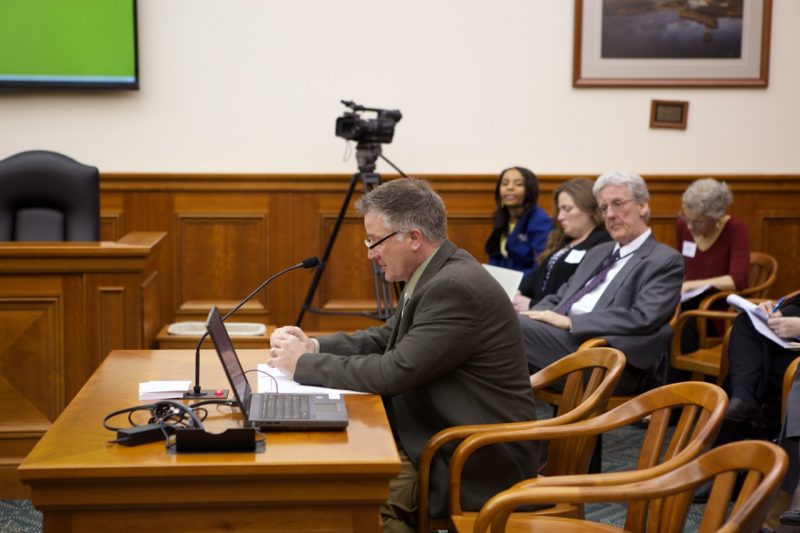Alternatives to Incarceration
Safe & Just Michigan advances strategies that safely reduce the state’s reliance on incarceration. In partnership with a diverse range of stakeholders, we promote the use of alternatives to incarceration that have proven results to reduce reoffending. Safe & Just Michigan highlights best practices to key decision makers through our legislative and outreach activities.

Steven Mays, mental health diversion council liaison, testifies before the House Law and Justice Committee on May 23, 2017.
Michigan’s over-reliance on confinement
At the end of 2017, the Michigan Department of Corrections was responsible for nearly 100,000 people in prison, on parole, and on probation. Among those, roughly 40,000 individuals are incarcerated, including children, the elderly, and many who are mentally ill.
Another 15,000 people are currently in Michigan jails, with most awaiting trial.
Michigan’s over-reliance on state and local incarceration is costly for taxpayers and has broad reaching effects on the incarcerated that last long beyond their release. Family connections weaken and employment opportunities become limited after long periods of confinement, increasing the odds of recidivism.
Community safety through local solutions
Community-based programs offer important and effective solutions that reduce crime and allow policymakers to rely less on incarceration, while still prioritizing community safety.
Local strategies such as problem-solving courts divert people from the criminal justice system while addressing the person’s underlying needs. Michigan’s nearly 200 problem-solving courts achieve individual accountability while reducing the likelihood of further engagement in negative behavior.
Additional tools, including mental health, substance abuse, life skills, housing, and employment services allow individuals to regain their productivity and effectively contribute to their own communities, families, and economies.
Resources
- Download: 10,000 Michigan prisoners: Strategies to reach the goal, Safe & Just Michigan (formerly CAPPS)
- Download: Decriminalization of Mental Illness: Fixing a Broken System, Judge Milton L. Mack, Jr., state court administrator
- Download: Blueprint for Shared Safety, Californians for Safety and Justice
